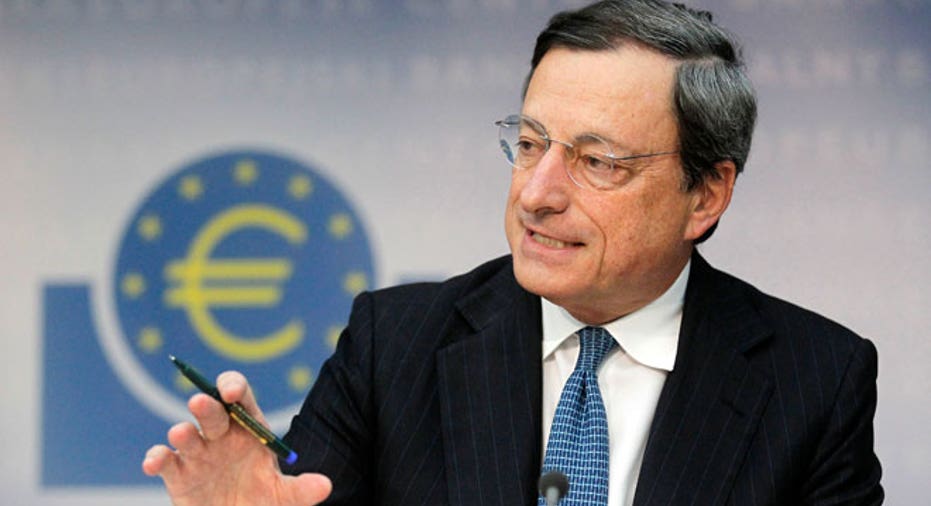Draghi: ECB Monetary Policy Is Stimulating the Economy

European Central Bank President Mario Draghi issued a strong defense of accommodative monetary policy Monday, saying that there was no alternative to such policy in an environment where inflation remains very weak. He also said that low interest rates benefit savers over the medium term.
Speaking in Frankfurt, Mr. Draghi said that the central bank's policy is helping the eurozone economy get back on its feet. "Today, faced with a persistent output gap and too-low inflation, our monetary policy is stimulating the economy by steering market rates below their long-term levels," he said according to a text published on the ECB's website.
Mr. Draghi's comments at the annual meeting of the Asian Development Bank come as the ECB's very generous monetary policy has come under fire in Germany under accusations that it hurts savers.
The ECB chief also said that uncertainty about the future of Europe is hurting the continent's economy. "There is little doubt that question marks over the future of the euro area, and the European Union in general, are contributing to uncertainty for individuals and firms, and that this can hold back consumption and investment," he said. "Removing this uncertainty will help boost consumption and unleash investment across the continent."
Though not mentioning this directly, Europe faces a major test next month when British voters go to the polls over the country's membership of the EU on June 23. In an interview published last week, Mr. Draghi said: "I cannot and do not wish to believe that the British would vote to leave, because we are stronger together." He added: "But if they do, it should be clear: They would lose the benefits of the single market."
He said that if central banks kept rates high it would make investing unattractive which would have the result of keeping the economy in recession. On the flip side, keeping rates relatively low, this encourages investment and consumption.
"It might seem at first glance that this policy is tantamount to penalizing savers in favor of borrowers. But in the medium-term, expansionary policy is actually very much to the benefit of savers," he said. "For a start, savers can still earn satisfactory rates of return from diversifying their assets, even when interest rates on deposit and savings accounts are very low."
He noted that households in the U.S. allocate about of third of financial assets to equities, whereas in France and Italy it is about one fifth and only one 10th in Germany.
Mr. Draghi said that part of the way that rates of return can rise involved "continued expansionary policies until excess slack in the economy has been reduced and inflation dynamics are sustainably consistent again with price stability." Indeed, "There is simply no alternative to this today."
By Todd Buell



















